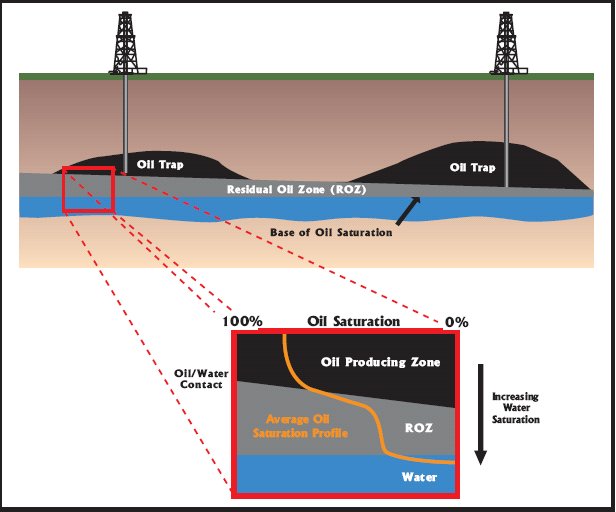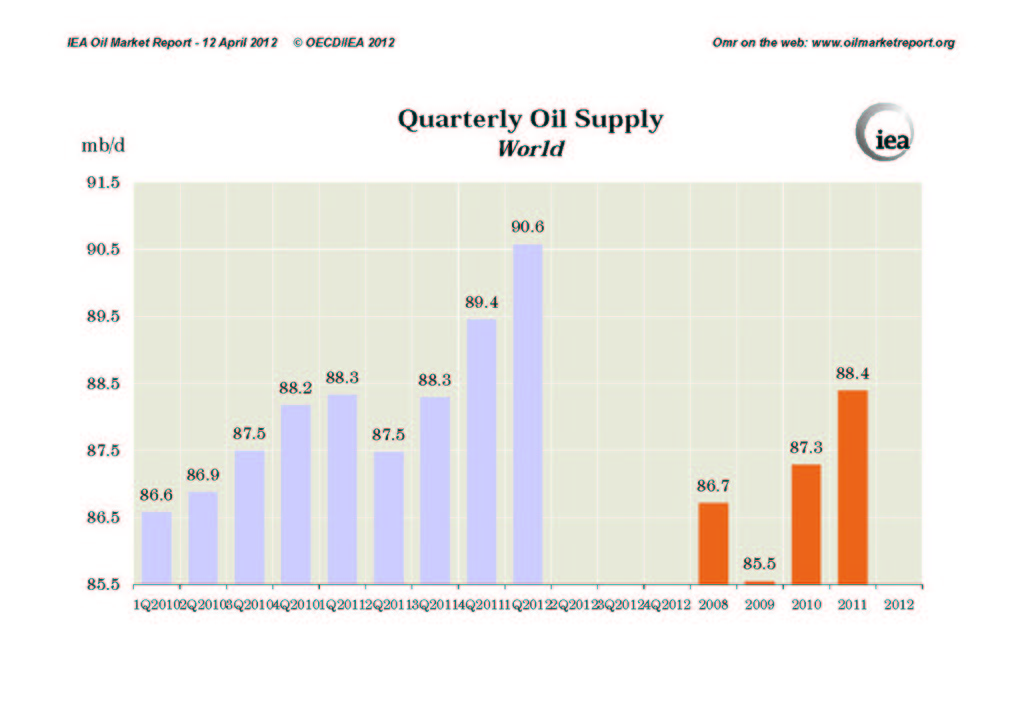The Great Myth is that oil comes from the decaying dinosaurs over millions of years ago and that is were oil comes from. The theory should good to Environazis because then they can scream against drilling and for an alternative.
It's not the belief amongst all scientist, in fact more and more scientist are coming the the conclusion oil is abiotic substances that the Earth creates naturally and regularly.
Think about it. All we hear is Peak Oil. My older cousin said he was told in school peak oil was going to hit in 1980s. I was told it was around the corner in 2000s. Now we find ourselves in an oil boom? How are scientist always off on Peak Oil and gigantic discovers, from Russia, Brazil, Israel, US etc are happening regularly?
It's because it naturally created by the Earth and then is squeezed out from the earths crust in large deposits!
I think the key distributors of the Peak Oil Myth are the Oil companie themselves. It's suppy and demand. If demand is hugh, but supply is just as high price can increase to capitalize on the high demand. If demand is high, but supply is PRECEIVED as low, then price can be shot up. They push these myths to make record profits!
It's not the belief amongst all scientist, in fact more and more scientist are coming the the conclusion oil is abiotic substances that the Earth creates naturally and regularly.
Think about it. All we hear is Peak Oil. My older cousin said he was told in school peak oil was going to hit in 1980s. I was told it was around the corner in 2000s. Now we find ourselves in an oil boom? How are scientist always off on Peak Oil and gigantic discovers, from Russia, Brazil, Israel, US etc are happening regularly?
It's because it naturally created by the Earth and then is squeezed out from the earths crust in large deposits!
I think the key distributors of the Peak Oil Myth are the Oil companie themselves. It's suppy and demand. If demand is hugh, but supply is just as high price can increase to capitalize on the high demand. If demand is high, but supply is PRECEIVED as low, then price can be shot up. They push these myths to make record profits!
Discovery backs theory oil not ‘fossil fuel’
A study published in Science Magazine today presents new evidence supporting the abiotic theory for the origin of oil, which asserts oil is a natural product the Earth generates constantly rather than a fossil fuel derived from decaying ancient forests and dead dinosaurs.
Ads by Google
I Stopped My Hair Loss
I grew my hair back naturally. I got safe, fast results. Try now!
www.naturalwellbeing.comThe lead scientist on the study ? Giora Proskurowski of the School of Oceanography at the University of Washington in Seattle ? says the hydrogen-rich fluids venting at the bottom of the Atlantic Ocean in the Lost City Hydrothermal Field were produced by the abiotic synthesis of hydrocarbons in the mantle of the earth.
The abiotic theory of the origin of oil directly challenges the conventional scientific theory that hydrocarbons are organic in nature, created by the deterioration of biological material deposited millions of years ago in sedimentary rock and converted to hydrocarbons under intense heat and pressure.
While organic theorists have posited that the material required to produce hydrocarbons in sedimentary rock came from dinosaurs and ancient forests, more recent argument have suggested living organisms as small as plankton may have been the origin.
The abiotic theory argues, in contrast, that hydrocarbons are naturally produced on a continual basis throughout the solar system, including within the mantle of the earth. The advocates believe the oil seeps up through bedrock cracks to deposit in sedimentary rock. Traditional petro-geologists, they say, have confused the rock as the originator rather than the depository of the hydrocarbons.
Giora Proskurowski
Lost City is a hypothermal field some 2,100 feet below sea level that sits along the Mid-Atlantic Ridge at the center of the Atlantic Ocean, noted for strange 90 to 200 foot white towers on the sea bottom.
In 2003 and again in 2005, Proskurowski and his team descended in a scientific submarine to collect liquid bubbling up from Lost City sea vents.
Proskurowski found hydrocarbons containing carbon-13 isotopes that appeared to be formed from the mantle of the Earth, rather than from biological material settled on the ocean floor.
Carbon 13 is the carbon isotope scientists associate with abiotic origin, compared to Carbon 12 that scientists typically associate with biological origin.
Lost City Vents
Proskurowski argued that the hydrocarbons found in the natural hydrothermal fluids coming out of the Lost City sea vents is attributable to abiotic production by Fischer-Tropsch, or FTT, reactions.
The Fischer-Tropsch equations were first developed by Nazi scientists who created methodologies for producing synthetic oil from coal.
Our findings illustrate that the abiotic synthesis of hydrocarbons in nature may occur in the presence of ultramafic rocks, water and moderate amounts of heat, Proskurowski wrote.
The study also confirmed a major argument of Cornell University physicist Thomas Gold, who argued in his book The Deep Hot Biosphere: The Myth of Fossil Fuels that micro-organisms found in oil might have come from the mantle of the earth where, absent photosynthesis, the micro-organisms feed on hydrocarbons arising from the earths mantle in the dark depths of the ocean floors.
Affirming this point, Proskurowski concluded the article by noting, Hydrocarbon production by FTT could be a common means for producing precursors of life-essential building blocks in ocean-floor environments or wherever warm ultramafic rocks are in contact with water.



